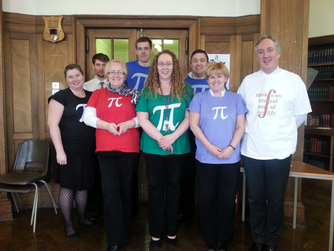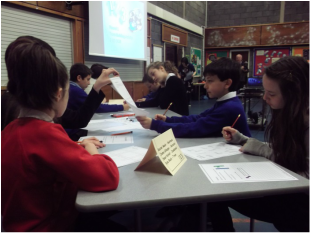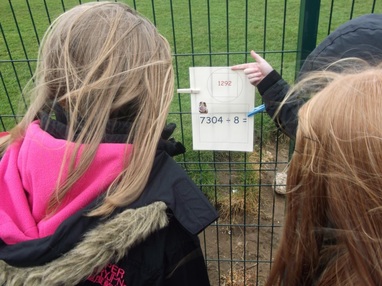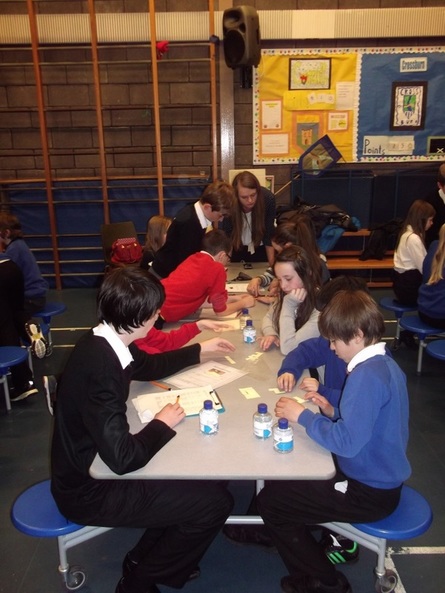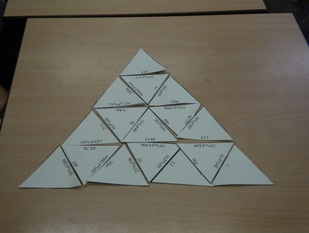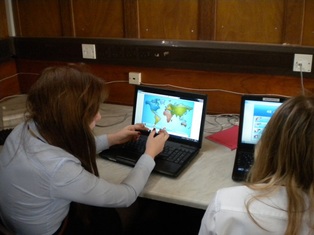Mathematics
What We Do
The Mathematics Department aims to combine an appreciation of the power and beauty of Mathematics with the responsibility to prepare each pupil thoroughly for presentation in external examinations and to provide them with the mathematical understanding that will underpin their experience in other subject areas.
All aspects of Learning and Teaching in the Mathematics department embrace the principles of a Curriculum for Excellence, aiming to equip pupils with skills for learning, life and work.
To face the challenges of the 21st century, each young person needs to be confident in using mathematical skills, and Scotland needs both specialist mathematicians and a highly numerate population. Learning through mathematics enables children and young people to
All aspects of Learning and Teaching in the Mathematics department embrace the principles of a Curriculum for Excellence, aiming to equip pupils with skills for learning, life and work.
To face the challenges of the 21st century, each young person needs to be confident in using mathematical skills, and Scotland needs both specialist mathematicians and a highly numerate population. Learning through mathematics enables children and young people to
- develop essential numeracy skills, including arithmetical skills which allow them to participate fully in society
- develop a secure understanding of the concepts, principles and processes of mathematics and apply these in different contexts, including the world of work
- have an understanding of the application of mathematics, its impact on our society past and present, and its potential for the future
- Establish firm foundations for further specialist learning, for those who will be the mathematicians of the future.
Primary-Secondary Transition
The department is continuing to work with our associated primaries to provide the best mathematical education for all our learners. We are in regular contact with our primary colleagues to discuss and plan appropriate learning opportunities for all. Over the last two sessions we have developed a Numeracy Challenge which sees all our young people, from all our cluster schools, participating in a series of problem solving activities. The event has been hugely enjoyable and rewarding for all concerned, and will be a regular feature in our school calendar.
Junior Phase
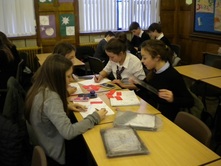
Throughout S1 to S3, pupils will visit the department four times each week. They will follow a course based on the CfE Mathematics and Numeracy experiences and outcomes at levels 2 - 4. Pupils are encouraged to push themselves beyond the strict confines of the prescribed courses, employing a wide range of resources and methodologies to ensure a genuine understanding and appreciation of all aspects of the subject.
In the first two years of study all pupils are encouraged to work without a calculator, to develop their numeracy skills. Numeracy skills and mental strategies are revisited on a regular basis throughout each year to build confidence and fluidity. Establishing good numeracy skills is necessary for successful learning across the curriculum and developing these skills needs to be of high priority.
Throughout the junior phase pupils are given the opportunity to work together on a host of different Mathematical problems, allowing them to apply skills and understanding creatively and logically to solve problems. Working on suitably challenging problems individually and in groups helps to develop resilience and gives opportunities to communicate solutions. Pupils can experience real satisfaction and enjoyment through success in solving problems and puzzles.
Pupils are encouraged to participate in a variety of local and National competitions.
• RBS Enterprise Challenge
• UKMT Mathematical Challenge
• SMC Enterprising Maths Competition
• SMC Mathematical Challenge
• World Maths Day
• Mathématiques sans Frontières
All competitions have been hugely enjoyable and rewarding for our students
In the first two years of study all pupils are encouraged to work without a calculator, to develop their numeracy skills. Numeracy skills and mental strategies are revisited on a regular basis throughout each year to build confidence and fluidity. Establishing good numeracy skills is necessary for successful learning across the curriculum and developing these skills needs to be of high priority.
Throughout the junior phase pupils are given the opportunity to work together on a host of different Mathematical problems, allowing them to apply skills and understanding creatively and logically to solve problems. Working on suitably challenging problems individually and in groups helps to develop resilience and gives opportunities to communicate solutions. Pupils can experience real satisfaction and enjoyment through success in solving problems and puzzles.
Pupils are encouraged to participate in a variety of local and National competitions.
• RBS Enterprise Challenge
• UKMT Mathematical Challenge
• SMC Enterprising Maths Competition
• SMC Mathematical Challenge
• World Maths Day
• Mathématiques sans Frontières
All competitions have been hugely enjoyable and rewarding for our students
Senior Phase
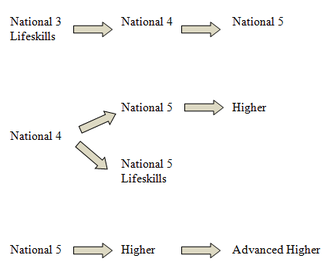
In the senior phase, all learners study Mathematics for five periods each week.
We pride ourselves as being very successful in terms of examination results and regularly have pupils going on to university to study mathematics or related subjects. When pupils leave the department they are fully aware of the place and relevance of Mathematics in the working world.






